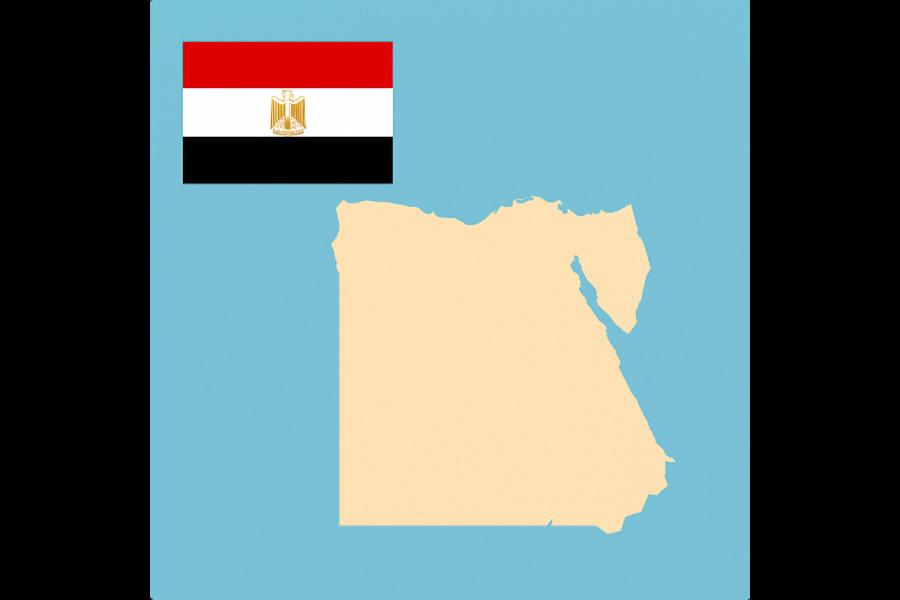Egypt’s mergers and acquisitions (M&A) landscape has experienced significant transformation over the past few years, driven by economic reforms, regulatory changes, and strategic investments. This article delves into the evolution of Egypt’s M&A activities, highlighting major deals, regulatory distinctions, and the strategic rationale behind these transactions.
Regulatory Landscape: Aligning with Global Standards
In June 2024, Egypt implemented a pivotal change in its M&A regulatory framework by introducing a pre-closing notification system through Decree No. 1120 of 2024. This shift empowers the Egyptian Competition Authority (ECA) to review and address antitrust concerns before the consummation of transactions, aligning Egypt with international best practices.
Additionally, sector-specific approvals are mandated for M&A activities, including:
- Financial Sector: Prior approval from the Financial Regulatory Authority (FRA) is required for non-banking financial institutions.
- Banking: The Central Bank of Egypt must approve ownership changes in licensed banks.
- Healthcare and Education: Ministries of Health and Education oversee ownership transfers in hospitals and schools, respectively.
- Geographical Restrictions: The Sinai Development Authority must approve transactions involving assets in the Sinai Peninsula.
M&A Activity Trends (2021–2023)
2021: Post-Pandemic Rebound
Egypt witnessed a robust recovery in M&A activities in 2021, with total deal value reaching $6.7 billion across 22 deals—a 38% increase from the previous year. Key sectors included technology, media, telecom (TMT), and financial services.
2022: Gulf Investment Surge
The year 2022 saw increased investment from Gulf countries, particularly Saudi Arabia and the UAE. Notable transactions included:
- Vodacom’s Acquisition of Vodafone Egypt: Vodacom acquired a 55% stake in Vodafone Egypt for approximately $2.5 billion.
- ADQ and PIF Investments: The Abu Dhabi Developmental Holding Company (ADQ) and Saudi Public Investment Fund (PIF) invested in various sectors, including banking, fintech, and fertilizers.
2023: Economic Challenges Impact M&A
In 2023, M&A activity declined due to economic uncertainties, currency devaluation, and rising interest rates. The total number of deals dropped by 53% to 139, with deal value decreasing by 62% to $3.48 billion.
Major M&A Deals in Egypt
| Year | Acquirer | Target | Sector | Value (USD) | Notes |
| 2022 | Vodacom | Vodafone Egypt (55% stake) | Telecom | 2.5 billion | Largest telecom deal in Egypt |
| 2022 | ADQ | Commercial International Bank (17.2% stake) | Banking | 911.5 million | Significant banking sector investment |
| 2022 | PIF | e-Finance (25% stake) | Fintech | Undisclosed | Expansion into digital finance |
| 2021 | Banque Misr | CI Capital Holding (90% stake) | Financial Services | 767 million | Diversification into non-banking services |
| 2021 | First Abu Dhabi Bank | Bank Audi Egypt | Banking | 600 million | Entry into Egyptian banking market |
| 2021 | Bank ABC | BLOM Bank Egypt | Banking | 600 million | Expansion in Egyptian banking sector |
| 2021 | Vodacom | Vodafone Egypt (33% stake) | Telecom | 1.6 billion | Initial stake acquisition |
| 2022 | ADQ | Abu Qir Fertilizers (41.5% stake) | Fertilizers | Undisclosed | Strategic investment in agriculture |
| 2022 | ADQ | Fawry (11.8% stake) | Fintech | 55 million | Entry into digital payments |
| 2022 | PIF | EIPICO (4.7% stake) | Pharmaceuticals | Undisclosed | Healthcare sector investment |
| 2022 | PIF | Rameda Pharmaceuticals | Pharmaceuticals | Undisclosed | Increased stake in pharma |
| 2022 | PIF | BTECH (34% stake) | Retail | Undisclosed | Consumer electronics retail |
| 2021 | Ezz Steel | Egyptian Steel (18% stake) | Steel | 160 million | Consolidation in steel industry |
| 2024 | ICON | Seven State-Owned Hotels (51% stake) | Hospitality | 800 million | Major hospitality sector deal |
| 2024 | QatarEnergy | Chevron’s Offshore Block (23% stake) | Energy | Undisclosed | Expansion in energy sector |
Strategic Rationale Behind M&A Activities
Economic Reforms and Privatization
Egypt’s government has pursued economic reforms, including privatization of state-owned enterprises, to attract foreign investment and alleviate fiscal pressures. The transfer of state assets to the sovereign wealth fund aims to enhance governance and valuation.
Sectoral Opportunities
- Telecom and Fintech: High mobile penetration and a young population make Egypt attractive for telecom and fintech investments.
- Banking and Financial Services: Efforts to promote financial inclusion have spurred investments in banking and non-banking financial services.
- Energy: Egypt’s strategic location and energy resources have attracted investments in both traditional and renewable energy sectors.
Gulf Investment Strategies
Gulf countries, particularly Saudi Arabia and the UAE, have strategically invested in Egypt to diversify their economies and strengthen regional ties. These investments span various sectors, including banking, energy, and real estate.
Outlook for 2024–2025
The M&A landscape in Egypt is poised for recovery, supported by regulatory reforms and strategic investments. Key developments include:
- BP and ADNOC’s Joint Venture: Formation of Arcius Energy to develop Egypt’s gas assets.
- MaxAB and Wasoko Merger: Creation of Africa’s largest tech merger, enhancing e-commerce capabilities.
- Healthcare and Food Sectors: Continued investments driven by modernization efforts and consumer demand.
With ongoing economic reforms and a focus on attracting foreign investment, Egypt’s M&A activities are expected to gain momentum in the coming years.

